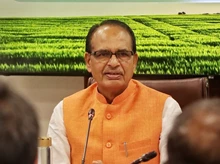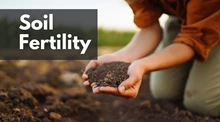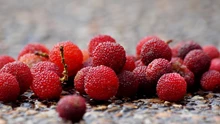
Pollination is not merely a fascinating natural process; it is essential for ecological survival and human well-being. Pollinators, including honeybees, butterflies, birds, bats, and various other animals, play a critical yet often unnoticed role in our ecosystems. They are indispensable for the pollination of numerous crops such as apples, bananas, blueberries, strawberries, melons, peaches, potatoes, vanilla, almonds, coffee, and chocolate.
According to the Food and Agriculture Organization (FAO) of the United Nations, Pollinators are essential for food security, with a third of global food production relying on bees. Protecting them is crucial for several reasons, from ensuring diverse and nutritious food supplies to maintaining ecosystems that support agriculture.
Pollinators are crucial for the reproduction of nearly 80% of the 1,400 crop plants we rely on for food and industrial products. Bees, in particular, are vital for maintaining biodiversity and supporting human survival. They provide high-quality food products like honey, royal jelly, and pollen, and other beneficial products such as beeswax, propolis, and bee venom. The global economic value of pollination services is estimated at over USD 3 trillion annually, highlighting the immense contribution of these tiny workers to agricultural productivity.
Three-fourths of the world’s flowering plants and about 35% of the world’s food crops depend on animal pollinators. More than 3,500 species of native bees help increase crop yields. Scientists estimate that one out of every three bites of food we consume exists because of pollinators like bees, butterflies, moths, birds, bats, and beetles.
Ecological and Environmental Benefits
Beyond food production, pollinators are essential for the reproduction of wild plants, which in turn support healthy ecosystems. Flowering plants, which depend on pollinators, play a crucial role in purifying water and preventing soil erosion. Their root systems stabilize the soil, while their foliage mitigates the impact of rain, aiding in the water cycle by returning moisture to the atmosphere.
Cultural and Economic Importance
The significance of bees extends to cultural and societal spheres. A 2019 report by the Intergovernmental Science-Policy Platform on Biodiversity and Ecosystem Services (IPBES) underscores their reverence in major religions throughout history. Beekeeping, especially involving the western honey bee, offers significant economic benefits, particularly in rural areas. These bees contribute to the production of approximately 1.6 million tonnes of honey annually, playing a vital role in global food security.
How Animal Pollination Works
Pollinators visit flowers in search of food, and in the process, they unintentionally transfer pollen from one flower to another, enabling plants to produce fruits and seeds. Without this service, many plants cannot reproduce, leading to a decline in plant populations and, consequently, the ecosystems they support.
Threats to Pollinators
Despite their importance, pollinator populations, particularly bees, are declining at an alarming rate. Factors such as habitat loss, intensive agricultural practices, climate change, and pesticide overuse are major contributors to this decline. Air pollution further complicates the issue by interfering with the scent molecules that plants release, making it harder for bees to locate food and pollinate effectively.
-
Habitat Loss: Urbanization, agricultural expansion, and deforestation have reduced the natural habitats of many pollinators. These changes not only decrease the availability of food sources but also fragment the landscapes necessary for their survival.
-
Pesticide Use: The widespread use of pesticides, particularly neonicotinoids, has been shown to harm pollinators. These chemicals can be toxic, affecting bees' nervous systems and reducing their ability to forage, reproduce, and survive.
-
Climate Change: Changes in temperature and weather patterns can disrupt the synchronicity between pollinators and flowering plants. This can lead to mismatches in timing, where flowers bloom before or after pollinators are active, thus reducing pollination success.
-
Disease and Parasites: Pathogens and parasites, such as the Varroa destructor mite, have devastated bee populations. These biological threats can weaken bees, making them more susceptible to other stressors.
Strategies to Protect Pollinators
To safeguard our food security, it is essential to implement strategies that protect pollinator populations. This involves actions at both individual and systemic levels.
-
Habitat Restoration and Protection: Creating and preserving pollinator-friendly habitats can provide essential resources such as nectar, pollen, and nesting sites. This can be achieved through planting native wildflowers, maintaining hedgerows, and setting aside conservation areas within agricultural landscapes.
-
Reducing Pesticide Use: Promoting integrated pest management (IPM) practices can minimize the reliance on harmful pesticides. IPM includes using natural predators, crop rotation, and organic farming techniques to control pest populations.
-
Supporting Research and Monitoring: Investing in research to better understand pollinator health, behavior, and ecology is crucial. Monitoring programs can track population trends and help identify emerging threats, enabling timely and effective interventions.
-
Public Awareness and Education: Raising awareness about the importance of pollinators and how individuals can contribute to their protection is vital. Community gardens, school programs, and public campaigns can inspire collective action to support pollinator conservation.
Protecting bees and other pollinators is not just a matter of environmental protection; it is vital for our food security and the health of our ecosystems. We can protect the stability and diversity of our food supply for future generations by acknowledging the vital roles these insects play in agriculture and ecosystems and by acting proactively to lessen the challenges they face.











